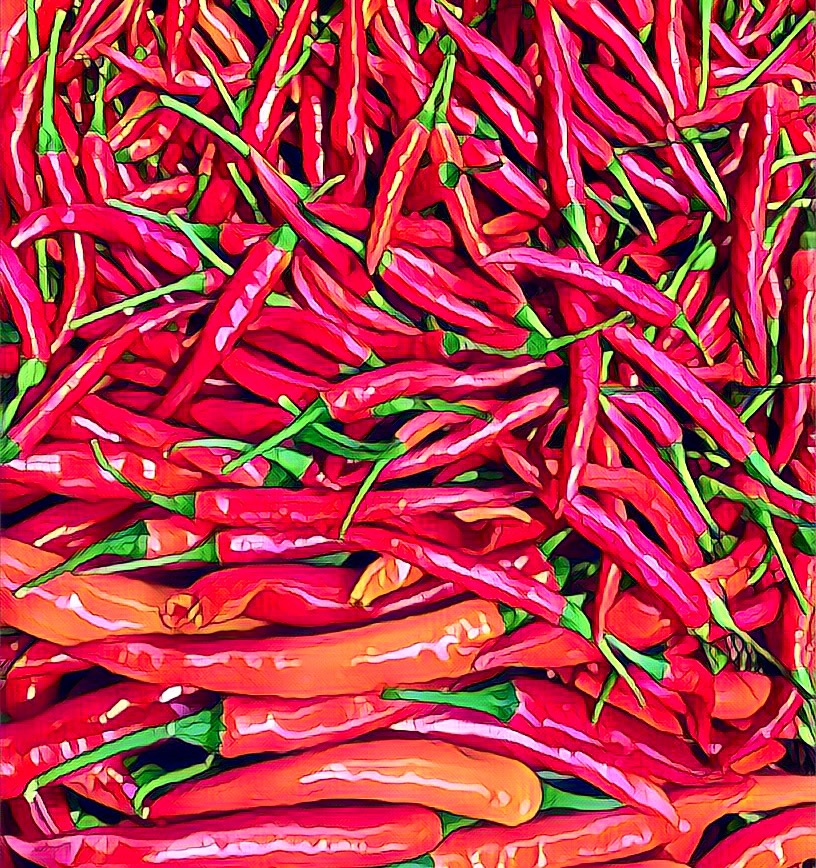Zimbabwe is poised to become a major exporter of chilies, thanks to a lucrative deal with a leading Thai supplier of chili paste, De Smit Food International. The agreement, signed with local firm Shumbatafari, will see thousands of smallholder farmers across the country contracted to grow chilies for the global market.
The deal will also involve significant investment in building factory capacity for semi-processed chili paste, which will be shipped to Thailand for further processing and distribution. De Smit Food International exports chili products to the United States, Europe, China, and across Asia.
According to the latest market research, the global demand for chilies is growing rapidly, driven by changing consumer preferences, health benefits, and culinary diversity. The dry chilies market size is estimated at US$1,61 billion in 2024 and is expected to reach US$42,6 billion by 2029, growing at a compounded annual growth rate (CAGR) of 6,11 percent during the forecast period (2024-2029). Similarly, the global chili sauce market is poised to grow significantly, from US$1,912 billion in 2022, expanding at a CAGR of 5,71 percent during the forecast period, reaching US$2,67 billion by 2028.
Zimbabwe has the potential to tap into this lucrative market, as it has favorable climatic conditions, fertile soils, and abundant labor for chili production. However, the country’s chili exports remain negligible, running into a few hundred thousand US dollars per annum. Most of the shipments go to South Africa, the Netherlands, and the United States. The three largest exporters of chilies globally are India, followed by China.
The partnership between De Smit Food International and Shumbatafari aims to change this scenario, by providing technical support, quality seeds, market linkages, and value addition to the local chili farmers. The project will also create employment opportunities, generate foreign currency, and contribute to the country’s economic development.
Shumbatafari managing director Mr. Valentine Tapfumaneyi said they invited De Smit Food to Zimbabwe to thrash out the modalities for the production of chilies and its conversion into a semi-processed state before its exportation.
“We have invited Smit Food to partner and set up a special-purpose vehicle (SPV) to produce chilies, at the same time supporting smallholder farmers, as well as working with parastatals to produce a sizeable amount of chili,” he said.
The Zimbabwean company was established in 2014, doing various crops, but started production of chilies in 2019 for the “volumes market”, a first in Zimbabwe. The arrangement with De Smitfood will cut the middleman and increase the margins for the outgrowers.
“Our initial projected target would be to do like 20 000 tonnes of fresh chilies, but we have to start somewhere. That translates to several thousands of hectares of chilies. Indirectly, this has an impact on over 5 000 families; we do small-scale, as well as commercial,” he said.
De Smit Food director Mr. Erwin De Smit said he was impressed by the professionalism and potential of the Zimbabwean chili sector, and expressed his readiness to roll out the out-grower scheme and invest in a semi-processed chili plant in the country.
“I was surprised by the way systems are set up here in Zimbabwe, especially on the farms, very professional, and it will make our life as an investor and company much easier. We are very happy to announce that we will start our business here very soon,” he said.
He added that Zimbabwe would be his first venture in Africa, as he already operates in Thailand, Vietnam, and China. He said he was looking for new sources of raw materials to meet the growing demand for chili products and diversify his risk.
“By setting up a professional contract farming system here in Zimbabwe, we will be able to not disappoint our customers; we will always be able to supply and also the market forecast of 10 percent growth every year, so we need more and more raw materials,” he said.
He said it was Shumbatafari, through Mr Tapfumaneyi, that explained to him about the opportunities and professional systems in the country, which motivated him to consider investing in Zimbabwe ahead of other countries.
Zimbabwe has a horticulture recovery and growth plan whose main target is to increase horticultural exports to US$300 million by 2030. The country currently earns US$120 million annually from exports of horticultural products, including citrus fruits, flowers, tea, avocados, blueberries, and macadamia nuts, according to the Horticultural Development Council.
Source: Zimbabwe Situation


